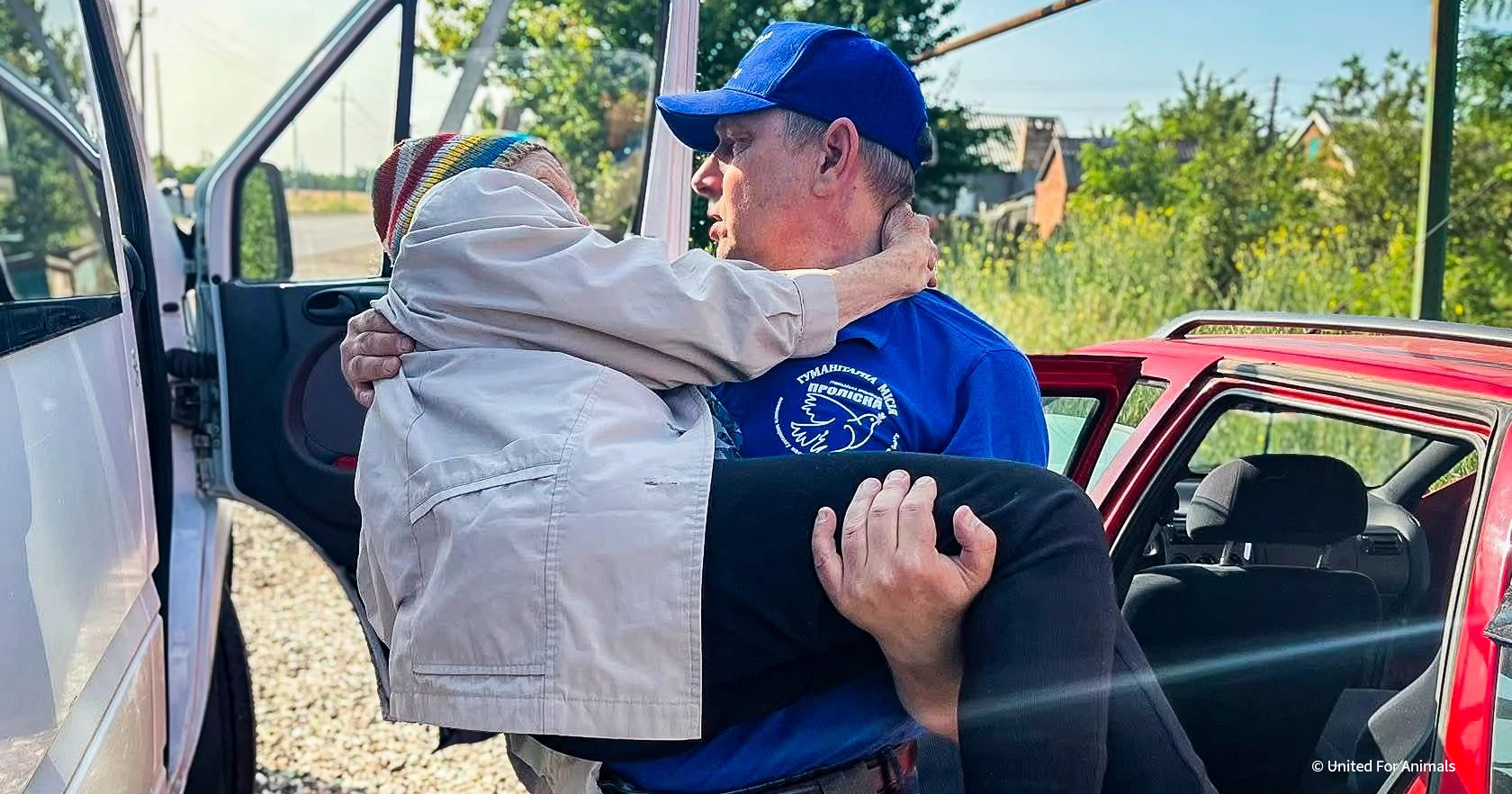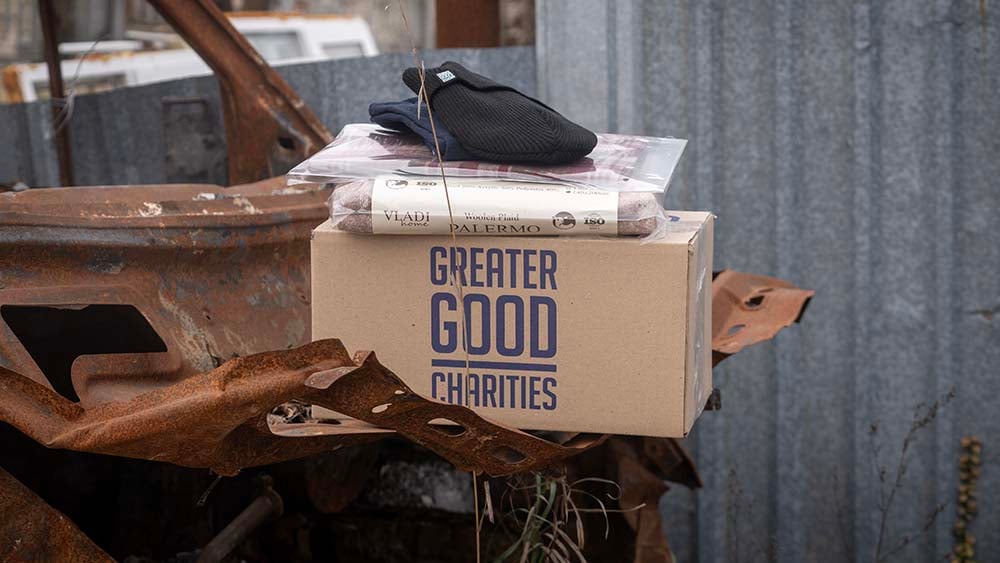From the Front Lines of Ukraine
A Story of Community in the Face of War
Greater Good Charities continues to provide aid to the people and pets of Ukraine as the war continues and Russia increases its attacks. This is a story from the front lines.
%20copy.jpg?width=500&height=500&name=414952649_3695935430677743_477616071903942334_n%20(1)%20copy.jpg) Photo © United for Animals
Photo © United for Animals
A community in need
There is a community on the front lines of the conflict and this location is a frequent site of Russian shelling. Despite the difficulties of war, residents of this city have rallied together.
 Photo © United for Animals
Photo © United for Animals
The invasion brought grief and horror to both people and pets.
As residents fled in panic to escape the bombing, hundreds of pets were abandoned by their owners. These cats and dogs continue to live on the city streets, missing their families and surviving only through the kindness of those who stayed.
Many caring people and volunteers are doing their best to care for these innocent animals by feeding them or providing medical treatment if they have the skills and ability.
the toll of war
These local heroes are facing a difficult situation as the war continues. Many are unemployed and struggling to get by, and pet food and treatment costs are beyond their means.
In this city, over 300 compassionate residents are the sole providers for more than 2,500 dogs and 4,000 cats. This responsibility is immense, and they are in dire need of our support.
 Photo © United for Animals
Photo © United for Animals
We are deeply grateful for the support of our donors, which, combined with the efforts of our partners on the ground, has allowed us to deliver nutritious pet food and aid to these incredible individuals who are saving animal lives every day.
Your support has been instrumental in ensuring that these deserving animals are fed and that Greater Good Charities can continue to provide pet food to families with pets, animal shelters, and homeless animals on the street.
Together, we have provided 31.6 million pet meals in Ukraine to date.
ukraine still needs our support
As the war continues into its third year, donations to support relief efforts have declined worldwide. But the need persists.
Greater Good Charities is committed to providing long-term support for displaced people and family pets, shelter pets, and stray animals.
Your support is saving lives. By becoming a protector today, you can provide year-round support for Ukraine's people and pets, who are in desperate need as the conflict continues.


